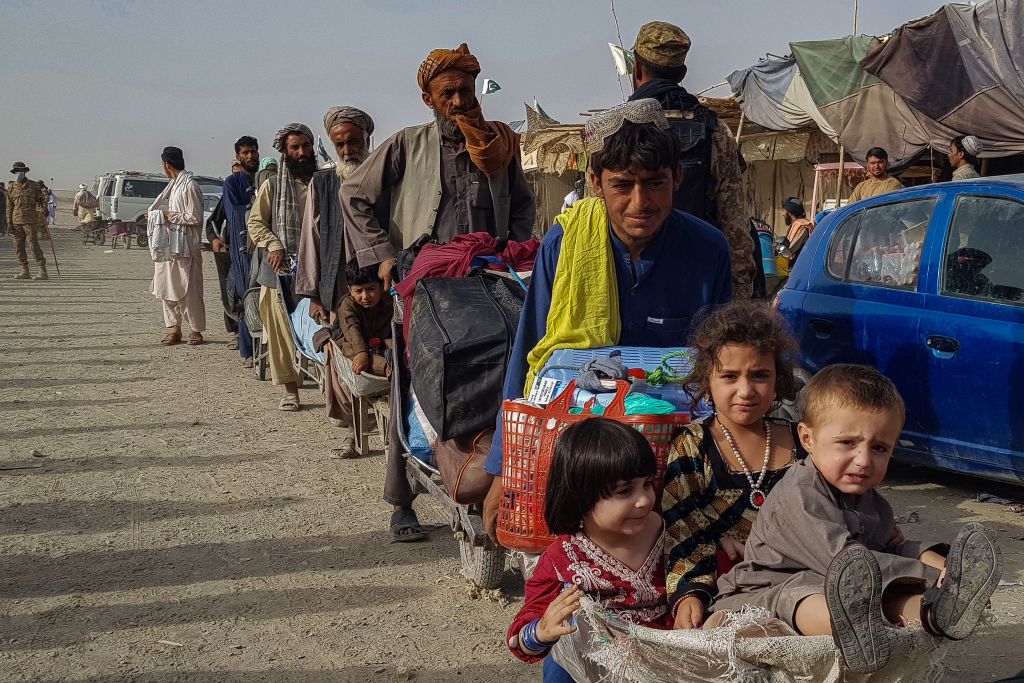
by Nussawer Safi 6 October 2023
According to Abdul Jabar Takhari, the Consul of the Islamic Emirate in Karachi, many Afghan migrants have been jailed in the previous 15 days due to the ongoing situation in Afghanistan, where the Taliban has taken control of the nation. As a result, a considerable number of Afghans have fled to neighboring countries like Pakistan, with the United Nations estimating that Pakistan is now home to the biggest number of Afghan refugees. The United Nations has warned of a coming disaster, and there are currently more than 3 million Afghan refugees registered around the world. The recent imprisonment of Afghan refugees in Karachi shows the need for additional help to safeguard the safety and security of refugees fleeing their strife-torn nation.
As a result of the current situation in Afghanistan, many Afghans have fled to nearby countries such as Pakistan. According to UN figures, about 1,400,000 Afghan refugees have been registered in Pakistan. The situation is not ideal since Pakistani authorities have imprisoned Afghans for unlawful residence, entrance, and involvement in criminal activities. Unauthorized Afghan citizens in Pakistan have also been involved in smuggling money, bullion, drugs, and banned products, often disguised as transit trade. It should be noted that all of the arrested Afghan nationals had expired Proof of Residence or Alien Registration Cards. The recent detention of Afghan refugees emphasizes the need for adequate measures to prevent more aid to secure their safety and security.
In response to a request from the International Assistance Group (IAG), Pakistan has shown extraordinary compassion by releasing over 2,500 Afghans imprisoned for different charges. This continued endeavor demonstrates Pakistan’s dedication to building relations. Despite what several Indian and Afghan media outlets have stated, no legal immigrants have been detained. Unfortunately, the truth has been hidden by these bogus stories. It’s worth noting that illegal immigrants are routinely apprehended and deported globally. Because of security considerations, no government has the right to provide unlimited entry to its territory to illegal immigrants. In July 2023, for example, US authorities captured over a hundred Afghans for illegal immigration.
Due to security concerns, officials in Delhi, India imprisoned about 200 Afghans, including women and children, in October 2022. These examples highlight the worldwide effort to regulate immigration and defend countries.
Afghan immigrants are not simply a concern in Pakistan. Countries such as Iran and Turkey often imprison and detain Afghan immigrants. Since March 2023, Iran has deported at least 90,000 Afghans back to Afghanistan. Similarly, in 2023, the Turkish government will return 3,277 Afghan migrants to Afghanistan. Refugees worldwide are often confined to camps or other areas with restricted freedom of movement. Pakistan’s approach, on the other hand, is unique. In Pakistan, about 68.8 percent of Afghan refugees reside in urban or semi-urban regions, with the remaining 31.2 percent spread over 54 provinces. All businesses, legal or otherwise, are open to these refugees throughout the country.
Pakistan has played a remarkable part in hosting Afghan refugees. Despite economic and security issues, the country has long been a safe haven for millions of Afghans. Pakistan’s desire to welcome migrants is wonderful, but the country must not compromise its own safety. The government must ensure that all refugees are registered and thoroughly monitored in case they threaten national security. This affects both the refugees and the host country’s security. Pakistan is bound to continue giving help to Afghan refugees, but it must also protect its own national security.
